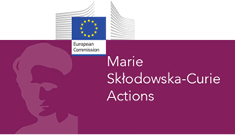EcoUnions – Transitioning to a Low Carbon Economy: Trade Unions and the ‘Jobs versus Environment’ Dilemma
The project EcoUnions investigates how Danish and British trade unions are navigating the ‘jobs versus environment’ dilemma between protecting the environment and protecting jobs in polluting industries.

EcoUnions is a comparative, interdisciplinary and multi methods study that will: (a) examine and compare trade union approaches to the dilemma in Denmark and the United Kingdom (UK); b) explore how organisational and institutional dynamics shape trade union action; and (c) determine what role trade unions play in public debate on the transition to a low carbon economy.
Theoretically, the goal of EcoUnions is to develop a multi-level analytical framework that can guide future empirical inquiry and allow for a holistic understanding of the three key interconnected arenas in which trade unions are navigating the ‘jobs versus environment’ dilemma: internal union strategizing, climate policy-making and public debate.
To achieve this, an interdisciplinary approach is applied, combining employment relations with environmental sociology and the new field of environmental labour studies.
The Department of Sociology provides a unique environment that fits the interdisciplinary nature of the Eco-Unions project because it hosts the Employment Relations Research Centre (FAOS), the Copenhagen Centre for Social Data Science (SODAS), and the Centre for Sustainability and Society (SUSY)
Tackling the global crisis of human-induced climate change is the most urgent and immense challenge of the twenty-first century. To help surmount this challenge, the European Union has subscribed to the Paris Agreement and the seventeen goals of the United Nations 2030 Agenda for Sustainable Development.
Transitioning to a low carbon economy requires a broad coalition of governments, supranational institutions, corporations, and civil society actors. Among these, trade unions have a crucial role to play because the most significant path to decarbonisation will be through a transformation of industrial production, which accounts for more than 80 per cent of Europe’s total carbon emissions.
While trade unions have a demonstrated capacity to help make industrial processes more sustainable, their action is limited by a constant ‘jobs versus environment’ dilemma between protecting the environment and protecting jobs in polluting industries, which millions of their members depend on for their livelihood.
If you have any questions related to the project, you are welcome to contact Torsten Geelan. You can also find him on Twitter here,
Researchers
| Name | Title | Phone | |
|---|---|---|---|
| Search in Name | Search in Title | Search in Phone |
Funded by:

Eco-Unions is funded by a Marie Skłodowska-Curie Fellowship from the European Union
Project: EcoUnions – Transitioning to a Low Carbon Economy: Trade Unions and the ‘Jobs versus Environment’ Dilemma
Period: September 2021 - September 2024
Contact
Marie Curie Fellow Torsten Geelan
Department of Sociology
Mail: tg@soc.ku.dk
